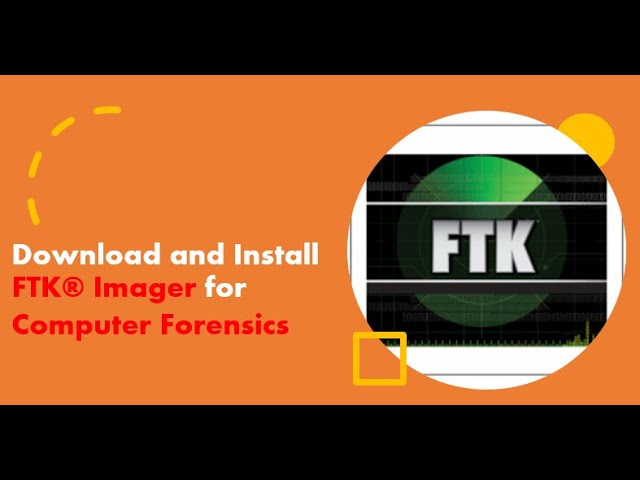FTK

In the realm of digital forensics, where the quest for truth and evidence lies within the intricate codes and digital footprints, tools like the Forensic Toolkit (FTK) have become indispensable assets for investigators and analysts. Developed by AccessData, FTK stands as a cornerstone in the field of digital investigations, providing a robust platform for extracting, analyzing, and preserving digital evidence. In this article, we delve into the world of FTK, exploring its features, functionalities, and significance in modern forensic investigations.
Table of Contents
ToggleThe Evolution of Digital Forensics
The evolution of technology has revolutionized the landscape of crime, ushering in a new era where digital evidence plays a pivotal role in investigations. From cybercrimes to corporate frauds, digital footprints left behind by perpetrators serve as critical clues for law enforcement agencies and forensic experts. However, the sheer volume and complexity of digital data pose significant challenges for investigators, necessitating the use of specialized tools and techniques.
Introduction to FTK
Forensic Toolkit (FTK) is a comprehensive digital forensics solution designed to streamline the process of collecting, analyzing, and presenting digital evidence. Developed by AccessData, FTK has emerged as a leading platform trusted by law enforcement agencies, government organizations, and corporate security teams worldwide. With its intuitive interface and powerful features, FTK enables investigators to navigate through vast amounts of data efficiently, uncovering crucial evidence to support their investigations.
Key Features of FTK
1. Data Acquisition:
FTK allows users to acquire digital evidence from a wide range of sources, including hard drives, mobile devices, cloud storage, and network shares. Its advanced imaging capabilities ensure the integrity and authenticity of the acquired data, preserving its admissibility in legal proceedings.
2. Data Analysis:
Once the data is acquired, FTK provides powerful analysis tools to examine and dissect various file formats, including documents, images, videos, emails, and more. Its built-in search functionality allows investigators to quickly locate relevant information, such as keywords, metadata, and file artifacts.
3. Timeline Analysis:
FTK offers timeline analysis features that enable investigators to reconstruct the sequence of events based on timestamped data. By visualizing the chronological order of file activity and system events, analysts can uncover patterns, correlations, and anomalies that may be crucial to the investigation.
4. Keyword Search and Filtering:
With FTK’s robust search and filtering capabilities, investigators can narrow down their focus to specific keywords, file types, or metadata attributes. This allows for targeted analysis, significantly reducing the time and effort required to identify relevant evidence amidst large datasets.
5. Reporting and Presentation:
FTK simplifies the process of generating comprehensive reports and presenting findings in a clear and organized manner. Investigators can create custom reports with detailed analysis, forensic artifacts, and supporting documentation, ensuring transparency and accountability throughout the investigative process.
Use Cases of FTK
1. Criminal Investigations:
Law enforcement agencies leverage FTK to investigate various types of crimes, including cybercrimes, financial fraud, child exploitation, and more. By analyzing digital evidence obtained from computers, mobile devices, and online platforms, investigators can reconstruct the activities of suspects and build a strong case for prosecution.
2. Corporate Security:
Enterprises rely on FTK to conduct internal investigations related to data breaches, employee misconduct, intellectual property theft, and regulatory compliance. By conducting forensic analysis of corporate assets, including workstations, servers, and email systems, security teams can mitigate risks and safeguard sensitive information.
3. Incident Response:
In the event of a security incident or data breach, FTK serves as a vital tool for conducting forensic analysis and incident response. By identifying the root cause of the incident, analyzing the extent of the compromise, and implementing remediation measures, organizations can minimize the impact and prevent future incidents.
Future Trends and Challenges
As technology continues to evolve, the field of digital forensics faces new challenges and opportunities. With the proliferation of IoT devices, cloud computing, and encrypted communications, investigators must adapt to emerging trends and develop advanced techniques for acquiring and analyzing digital evidence. Additionally, the growing emphasis on privacy and data protection requires forensic tools like FTK to adhere to strict legal and ethical standards, ensuring the integrity and confidentiality of sensitive information.
Conclusion
Forensic Toolkit (FTK) stands as a powerful ally in the fight against cybercrime and digital fraud. With its comprehensive features, intuitive interface, and robust capabilities, FTK enables investigators to uncover valuable insights from vast amounts of digital data, facilitating the pursuit of truth and justice. As technology continues to evolve and adversaries become more sophisticated, FTK remains at the forefront of digital forensics, empowering investigators to navigate the complexities of the digital landscape with confidence and precision.





